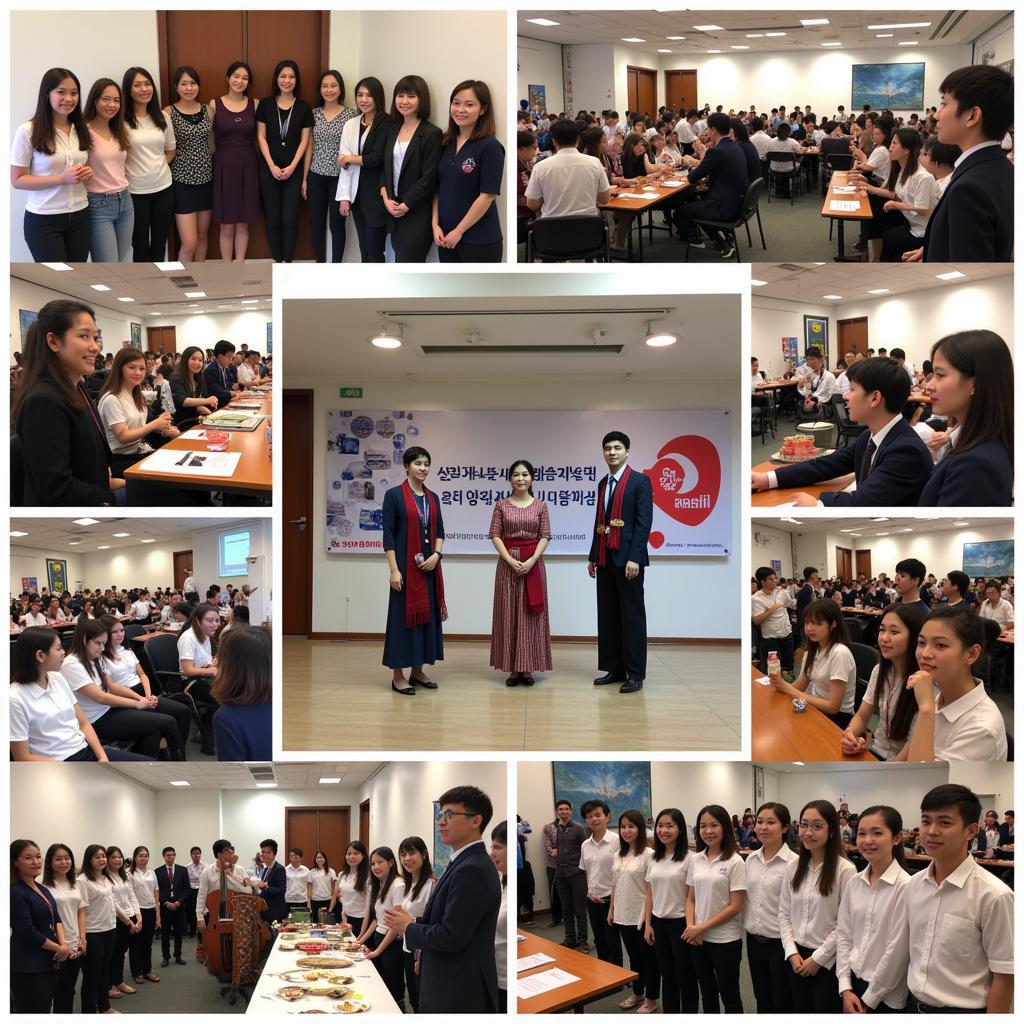ASEAN and Korea have cultivated a dynamic relationship over the decades, encompassing trade, investment, cultural exchange, and political dialogue. This “Ase Korea Wiki” exploration delves into the multifaceted dimensions of this partnership, examining its historical evolution, key achievements, and future prospects.
Understanding the interplay between ASEAN and Korea requires examining the historical context of their engagement. Initially driven by economic interests, the relationship has broadened to include a wide range of collaborations. From development assistance to people-to-people exchanges, the ASEAN-Korea partnership has become increasingly significant for both regions. The evolving geopolitical landscape of East Asia further underscores the importance of this strategic partnership.
A Historical Overview of ASEAN-Korea Relations
The foundation for ASEAN-Korea relations was laid in the 1980s, with the establishment of a sectoral dialogue partnership in 1989. This marked the beginning of a formal framework for cooperation between ASEAN and Korea. Over the years, the relationship has steadily progressed, marked by increasing levels of interaction and institutionalization. Key milestones include the establishment of the ASEAN-Korea Dialogue Partnership in 1989, the elevation to a comprehensive cooperation partnership in 1997, and the further strengthening into a strategic partnership in 2010. This progression demonstrates the growing importance of the relationship for both sides.
The ASEAN-Korea Free Trade Area (AKFTA), signed in 2007, is a significant achievement. It represents the commitment of both sides to promoting economic integration and facilitating trade and investment flows.
Economic Cooperation: The Cornerstone of the ASEAN-Korea Partnership
Economic cooperation forms the bedrock of the ASEAN-Korea relationship. Korea’s investments in ASEAN have contributed significantly to the region’s economic development, while ASEAN provides a growing market for Korean goods and services. The AKFTA has further enhanced this economic interdependence. From automotive manufacturing to electronics, Korean companies have established a strong presence in ASEAN countries, creating jobs and fostering technological transfer. ASEAN’s dynamic and growing consumer market also presents significant opportunities for Korean businesses.
The Future of ASEAN-Korea Relations: Navigating New Challenges and Opportunities
Strengthening Political and Security Cooperation
Beyond economic cooperation, ASEAN and Korea are also increasingly engaging on political and security issues. Given the complex geopolitical dynamics in East Asia, fostering stronger political and security ties is crucial for maintaining regional stability. Cooperation in areas such as maritime security, cybersecurity, and counter-terrorism has become increasingly important. Dialogue and collaboration on these issues are vital for addressing shared challenges and promoting regional peace and security. You can explore further resources related to ASEAN at asean 3 wiki.
Expanding Cultural and People-to-People Exchanges
Cultural and people-to-people exchanges play a vital role in fostering closer ties between ASEAN and Korea. Educational programs, cultural festivals, and tourism initiatives promote greater understanding and appreciation of each other’s cultures. Such exchanges create bridges between the people of ASEAN and Korea, contributing to a stronger sense of community and shared values. The rise of Korean popular culture, known as the “Korean Wave” or “Hallyu,” has further fueled interest in Korean language and culture across ASEAN. For more information about broader Asian collaborations, see asea wikipedia.
 Cultural Exchange Programs between ASEAN and Korea: Fostering Understanding and Appreciation
Cultural Exchange Programs between ASEAN and Korea: Fostering Understanding and Appreciation
Conclusion: A Partnership with Enduring Potential
The ASEAN-Korea partnership, rooted in mutual respect and shared interests, has evolved significantly over the years. From its initial focus on economic cooperation, the relationship has broadened to encompass a wide range of areas, including political and security dialogue, cultural exchange, and people-to-people connections. As both ASEAN and Korea navigate a complex and rapidly changing global landscape, strengthening this strategic partnership will be crucial for promoting regional stability, economic prosperity, and cultural understanding. Exploring “ase korea wiki” further reveals the dynamic and multifaceted nature of this important relationship. You might also find valuable information on ase semiconductor wikipedia.
FAQ
- What is the main objective of the ASEAN-Korea Free Trade Area (AKFTA)?
- How has the “Korean Wave” impacted cultural exchanges between ASEAN and Korea?
- What are the key areas of cooperation in political and security dialogue between ASEAN and Korea?
- How does Korea contribute to ASEAN’s economic development?
- What is the significance of the ASEAN-Korea Strategic Partnership?
- What are some examples of successful cultural exchange programs between ASEAN and Korea?
- How can individuals contribute to strengthening the ASEAN-Korea relationship?
Common Scenarios and Questions
- Scenario: A business owner wants to understand the benefits of exporting to Korea under the AKFTA.
- Question: What are the specific tariff reductions and trade facilitation measures available under the AKFTA for my product category?
Further Exploration
- Explore other articles on ASEAN trade relations on our website.
- Learn more about Korean investment opportunities in Southeast Asia.
Need support? Contact us 24/7: Phone: 0369020373, Email: [email protected]. Visit us at: Thôn Ngọc Liễn, Hiệp Hòa, Bắc Giang, Việt Nam.
